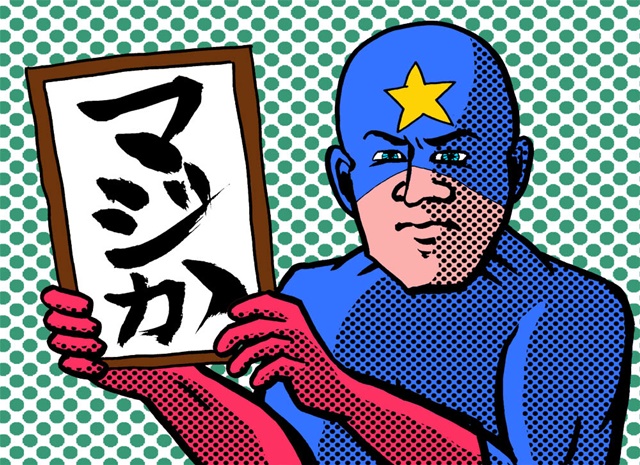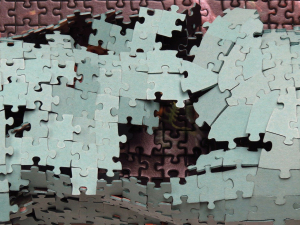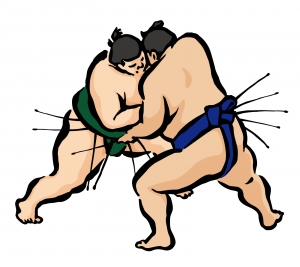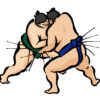What is the meaning of “maji” and its example sentences? マジ

“Maji, yabai“
“Eee, maji de?”
“Maji ka —“
“Maji de ureshii—!”
The word “maji” is used not only by young people but also by many adults in Japan.
Have you come across this word?
Even the Japanese have the impression that this is a youth language, but it is actually a word that has existed since the Edo period.
Let’s take a closer look at “maji”.
What is the meaning of Maji?
The Japanese word “maji” has several meanings.
For example, “south winds in Shikoku region”, “Japanese auxiliary verb”, “being square or earnest”.
But the meaning of “maji” you probably want to know would be the one like in the above-mentioned example sentences.
In that case, the meaning is:
seriously
really
truly
not a joke
actually
genuinely
So, the meaning of the above examples is as follows.
“Maji, yabai(マジ、ヤバい)”
It’s a really bad situation
It really cool.
“Eee, maji de?(ええー、マジで?)”
Is that true?
You must be kidding!
“Maji ka —(マジかー)“
No way!
No kidding?
Seriously?
Really?
Come on!
Oh my.
Oh boy.
Oh my goodness.
“Maji de ureshii—!(マジでうれしいー!)”
I’m really happy!
It is so easy to pronounce that it is often used like a habit.
“Maji” is used as a noun, or as an adverb such as “maji de(マジで)”, “maji ni(マジに)” or as an adjective such as “maji + word”.
What is the origin of “maji”?
There is some documents from the Edo period endorsing that “maji” was already used in the Edo period.
The word at that time did not have the same meaning as the current one. It was short for the word “majime(まじめ:真面目)”, meaning “serious” and “it’s true.”
The word was used as a dressing room for entertainers during the Edo period.
Later on, the word “maji” was used in a drama of the late 1970s, but the meaning, in that case, was the same as that used since the Edo period.
In the early 1980’s, the popular idol singer’s lyrics had a phrase which went “maji ni omae wo daita(I hugged you seriously:マジにお前を抱いた)”.
It is considered that the meaning of this phrase was the same as that of the Edo period. This song seems to have triggered the use of the word “maji” among young people.
In the 1980s, “yankii(ヤンキー)” (Japanese delinquents) became popular. Movies, dramas, manga, and anime in which they appeared also became popular, too.
In those works, yankii characters use words like “maji daze!(マジだぜ!)”, And it is thought that the meaning of “maji” has gradually changed from around there.
There was manga about yankii in the late 1980s and the title of which was called “本気 (the original meaning of the word is serious)” but there was furigana (small letters written next to kanji telling you how to read) “maji”.
Currently, when expressing “maji” in writing, it often goes “マジ” in katakana. However, when writing in kanji, it is often written as “本気” helped by such the yankii culture.
In addition, during the late 80’s and early ’90s, the then-popular comedians often used “maji” in their shows. The meaning was the same what the Japanese yankii used, and it naturally spread to the audience at once. They were also trying to spread other new words.
Other common examples of “maji”.
These are completely slang.
Oi oi, maji bibitta yo-.
おいおい、マジビビったよー。
Hey, it was really surprising.
Aitsu maji de hetare.
あいつマジでヘタレ。
That person is really a wimp.
Omae, maji mukatsuku.
お前、マジムカつく。
You are seriously annoying.
Onegai, maji de onegai.
お願い、マジでお願い。
Please, seriously, please.
Maji panai.
マジパない。
That’s surprising.
That’s awesome.
I can’t compete with it.
Maji manji.
まじ卍
“卍” has little meaning.
It seems to be often used to emphasize “maji”.
The sounds “maji” and “manji” are similar and are used in a conversation to make it have a good rhythm.
Is the word “gachi” different from “maji”?
One of the words used in a similar way to “maji” is “gachi(ガチ)”.
Gachi is originally an abbreviation of the sumo term “gachinko”, meaning serious competition.
It has a slightly different meaning and therefore is used differently than “maji”.


























